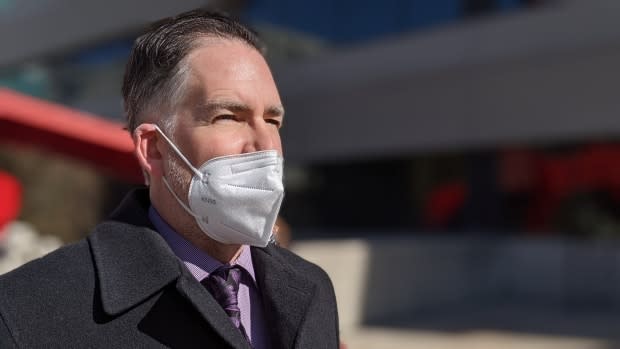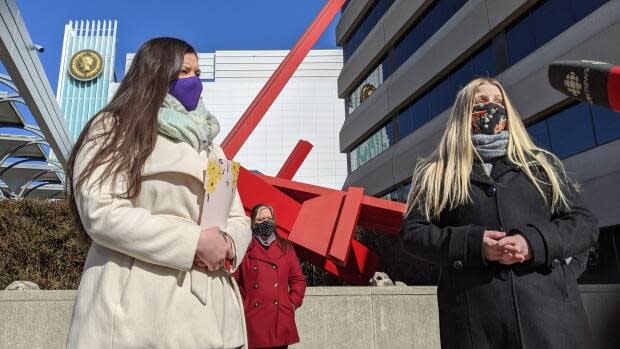As tax deadline looms, NDP, lawyers, financial experts warn of effect on CERB recipients

The NDP and Legal Assistance of Windsor are calling for the federal government to exempt low-income individuals and families who received the Canada Emergency Response Benefit but didn't actually qualify, from having to pay back that money.
And some financial experts are warning that people who received it properly may not have planned for the tax hit that comes with the money.
Back in March, the federal government announced some self-employed Canadians would no longer be required to repay the thousands of dollars they received through CERB. The call was made following mass confusion over the income requirements that would deem someone eligible to receive the benefit.
Some recipients applied for CERB under the impression that their gross income had to be at least $5,000 — when, in fact, net income was the deciding factor. Others were confused as to whether or not they had to have an income of $5,000 in 2019 — or in the last 12 months.
But while the government's clarification in March was a promising one, Windsor West MP Brian Masse said it falls short of realizing "the impact of enforcing CERB repayment on low-income families."
"Requiring low-income CERB recipients to repay the benefit will undoubtedly increase the helplessness many Canadians already feel," Masse said.
"To ensure that our communities remain resilient and flexible enough to come out of this crisis we need to ensure that our most vulnerable neighbours have an opportunity to succeed."

Sarah Voegeli, a contract lawyer with Legal Assistance of Windsor, said there's been cases of elderly people being encouraged by their friends, neighbours or community support workers to apply for CERB "without really understanding what the eligibility requirements were."
"Another large category that we have seen and anticipate to see in the coming months is the individuals at the much-lower end of the income spectrum that were already struggling pre-pandemic to feed their families and to make rent payments," she said.
"These individuals were really at a loss of what to do and gravitated toward applying for the CERB, even though they might not have been eligible to do so in order to ensure that their families had food to eat and they could keep the roof over their heads."
In other cases, people applied for CERB because it was introduced by the federal government as a way to "assist those who had lost their job as a result of COVID," only to realize they didn't qualify because they, for example, didn't make enough money in 2019, she said.
CERB will make filing taxes 'ugly,' says expert
And the confusion doesn't just apply to those who may not have been eligible for CERB; it's also being felt by those filing their taxes this year.
But while local officials say this clawback will hurt those who need it most, others who have accepted CERB are going to be in for an "ugly" tax filing, according to Mary Arif, owner of All Points Tax & Bookkeeping Services.
"A lot of folks didn't think that they had to [pay tax on CERB] or simply refused to believe that they had to. I don't know which it is, but there's going to be some taxes on the money that you took," Arif said.

Since mid-January, the federal government has been issuing T4A slips to CERB recipients. They're very similar to the T4 slips Canadians are used to receiving from their employers, according to the Canada Revenue Agency, "but rather than employment income, they provide the amounts of COVID-19 benefits received from the CRA in 2020."
"If you've received a T4A from the government for the money that you took, it's pretty straightforward, you're being taxed on it. That's as simple as that."
Arif said she's met several clients who are used to paying little to no taxes — but, this year, CERB has completely changed that. Depending on your tax bracket, some may be forced to shell out thousands in taxes.
"If you've received a T4A from the government for the money that you took, it's pretty straightforward, you're being taxed on it. That's as simple as that." - Mary Arif, owner of All Points Tax & Bookkeeping Services, on how CERB will affect this year's tax season
"The biggest challenge is going to be if they owe taxes and they've never owed before and never planned for it before, they're going to have to change their outlook about planning for their tax future," Arif said.
Some of the ways to do that, she said, include starting an RRSP, opening a TFSA account or acquiring the services of a financial professional.
"You need to plan your financial future. We all need to do better," she said.
The tax filing deadline for most Canadians is April 30 — and June 15 for people who are self-employed.

